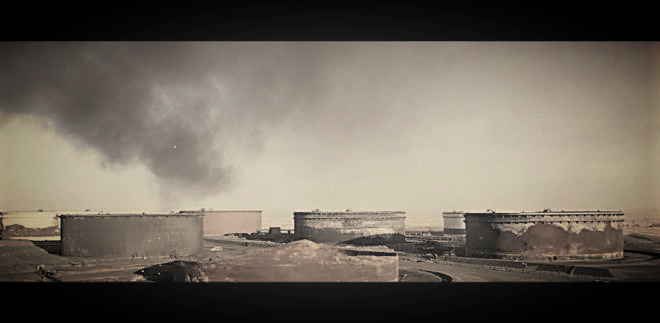NARCO Analysis: The War for Libya (and Its Oil)

At risk of sounding simplistic, the new conflict over Libya’s oil crescent ports is bad. And at risk of sounding alarmist, the conflict will accelerate Libya’s descent into instability.
Libya’s oil sector was finally getting its groove back. Production rose 300% in 4Q16. And while production was recently down from 700kbpd to around 630kbpd, this was due to maintenance issues. The oil sector was settling into a (boring?) rhythm, a welcome development after three years of unpredictability. National Oil Corporation (NOC) Chairman Mustafa Sanallah was encouraging investors to come back to Libya to bolster the sector’s recovery. North Africa Risk Consulting was planning a trip to Tripoli later this spring. But just how fragile that normalcy was is now there for everyone to see. Libya’s oil sector is still deeply troubled and is still a long way from boring.
The ouster of forces loyal to Libya’s wannabe strongman Khalifa Haftar from two of the Sirte Basin’s four export terminals by a hodge-podge of militias including the Islamist-inclined Benghazi Defense Brigades and groups from Misrata also shows that no armed political groups in Libya see the current conflict as anything other than a zero-sum game. And oil is critical. Even though Haftar had continued to direct revenue from the terminals under his control to the Libyan Central Bank after he had captured them from Ibrahim al-Jadhran in August 2016, there was clearly the sense among Haftar’s opponents that they were effectively at Haftar’s mercy. To depend on his largesse and goodwill for desperately needed funds was intolerable. Hence the offensive to take the terminals back. As for Haftar, he’s now learned that there’s no point in holding the terminals and handing over at least half the revenue they generate to his opponents if they are just going to come and attack his forces anyway. If Haftar launches a counter-attack and regains the terminals, what will he do then? The status quo ante doesn’t seem likely.
Another key question here is what NOC CEO Sanallah does. Sanallah has steadfastly tried to maintain the NOC’s neutrality. He argues that what’s important to him as CEO of the country’s oil company is not who’s in charge of the country but keeping the country’s oil flowing. He’s a technocrat and his deputies are technocrats as well. Sure, they have their political preferences (who doesn’t?), but their goal is to do what they are trained to do – manage the oil sector. The problem with this approach, though, is that not taking a stand is in fact taking a stand and Sanallah’s detractors will argue that by not rallying behind such-and-such a faction, he’s in effect rallying behind such-and-such a faction’s opponents. There was already the creeping perception in Tripoli that Sanallah was “pro-Haftar” because he struck a deal with Haftar’s forces to allow them to continue to hold the oil crescent export terminals. But Sanallah was no more “pro-Haftar” than he was “pro-Zintani” after he negotiated the reopening of the Rayana pipeline connecting El-Feel and Sharara to Mellitah. Sanallah was “anti-Jadhran” not because Jadhran was a gangster dressed up in separatist’s garb, but because Jadhran was blocking oil exports.
What Sanallah will likely do, then, is try to work with whoever ends up controlling the terminals to ensure that the oil continues to flow. But the misguided perception in some Tripoli circles that Sanallah was pro-Haftar is going to undermine his ability to convince the Misratan, Islamist, and “Ghwellist” elements that he’s on their side if they end up preventing Haftar from taking the terminals back.
After all, the only way to really remain neutral in a multi-layered conflict like Libya is to have nothing anyone wants. And, that, unfortunately, is not Sanallah’s lot.
